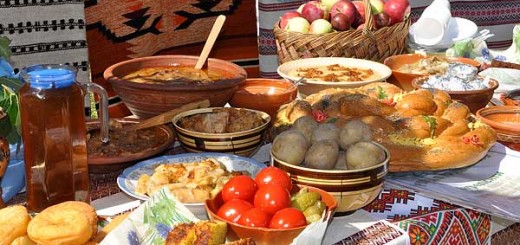Контрольные работы 7 класс
7 КЛАСC ____________________________________________________________
SEMESTER I
LISTENING COMPREHENSION TEST
Many years ago an elephant and a monkey had a quarrel. The elephant was proud because he was strong.
“Look how big and strong I am,” he said. “I can pull a tree down. Can you?”
Now the monkey was proud because he was so quick.
“Look how quickly I can run and climb,” he said. “Can you climb a tree?”
At last they decided to go and speak to the Old Bird.
“We cannot agree,” they told the Bird, “tell us what you think about it. Which is better – to be strong or to be quick?”
The Old Bird said to them: “Do as I tell you and then I’ll learn which is better. Do you see that great tree across the river? Go and get the fruit from it and bring it to me.”
So they went to the river, but the monkey was afraid of the water.
“Get on my back,” said the elephant proudly. “I will carry you. I am big and strong and I am not afraid to swim across the river.”
There on the bank stood the tree. It was so high that the fruit was above them. The elephant tried to pull the tree down, but it was too strong.
“Wait a minute,” said the monkey proudly. “I can climb.”
He ran quickly up the tree and threw the fruit to the, ground. The elephant put it in his great mouth. Then they crossed the river again and gave the fruit to the Old Bird.
“Now,” they said, “which is better — to be strong or to be quick?”
“Can anybody tell which is better?” asked the Old Bird. The elephant could not get the fruit alone. The monkey could not get the fruit alone. But you could get it together. One of you crossed the river, the other climbed up the tree.”
7 КЛАСC ____________________________________________________________
LISTENING COMPREHENSION TEST
- Say if the sentences are true or false (+/–).
- Many years ago an elephant and a monkey had a quarrel.
- The elephant was angry.
- The monkey was quick
- They could run and swim.
- They decided to speak to the Old Bird.
- The Old Bird promised to help them.
- Choose the correct answer.
- What did an elephant and a monkey have many years ago?
- a) a wardrobe; b) a quarrel; c) a squirrel; d) a friendship
- Why was the elephant proud?
- a) he was strong; b) he wasn’t strong; c) he was big; d) he was clever
- Was the monkey proud too? Why?
- a) he was strict; b) he was quiet; c) he was merry; d) he was quick
- What did they decide to do?
- a) to speak to the Old Bird; b) to ask some questions their friends; c) to go to the river; d) to speak to the Old Bear
- What did they ask the Old Bird?
- a) to be strong or to be big; b) to be quick or to be clever; c) to be strong or to be quick; d) to be quick and to be quick
- What did the Old Bird ask them to do?
- a) to bring him a tree; b) to bring him some fruit; c) to get some flowers; d) to bring him some apples
III. Make up 4 questions to the text (general, tag, alternative, special).
- What have you learnt from the text? Write a mini-composition (10 sentences)
7 КЛАСC ____________________________________________________________
SEMESTER I
READING COMPREHENSION TEST
The Boy who Saved the Netherlands.
Many years ago in Harlem, Holland, there lived a young boy. His name was Hans and he was eight years old. One autumn day, Hans went across the channel to visit an old blind man. He took the man some biscuits and stayed there for a while. Then, Hans decided to return home.
“Be careful, Hans” said the old man. “The water in the canal usually gets higher in autumn.” On his way home, Hans sang a song, watched the rabbits run around and picked some flowers for his mother. Suddenly, the sky got dark and heavy rain began to fall. Hans felt scared and started to run. Just then, he heard the sound of water flowing away .He looked around carefully, and then noticed a very small hole in the dike.
Hans felt frightened because he knew what could happen. The small hole could get bigger and bigger. Then the dike could burst and flood Holland. Hans knew what to do. He put his finger into the hole, so no more water cold come through it. “Please, someone help me!” Hans shouted. But there was no one to help him. After a while, he began to feel very cold and tired, but he could not leave the dike. All night long, Hans waited and waited…
The next morning, a priest walked by and heard Hans’ cries. “I am trying to stop the water,” the boy said. “Can you help me?” the priest called some other people and they quickly mended the hole. Finally, they took Hans home. Everyone was very proud of that brave boy.
7 КЛАСC ____________________________________________________________
READING COMPREHENSION TEST
- Write true or false:
- Hans was eighteen years old. ______
- Hans lived in Paris, France. ______
- Hans visited a young woman. ______
- It started raining that evening. _______
- Hans saw a big hole in the dike._______
- He put his shoes in the hole in the dike.______
- Put the events in the correct order
a___ Hans heard the sound of the water flowing away.
b___ A priest heard Hans cries and called some people to help.
c___ The sky got dark and rain began to fall .
d_1_ Hans went to visit an old blind man.
e ___ Hans put his finger in the hole.
f___ Hans decided to return home.
g___ The people mended the hole.
h___ Hans noticed a very small hole in the dike.
III. Answer the questions.
- Where did Hans live?
- How old was Hans?
3 .Who did Hans visit?
- What did the blind man tell Hans?
- What did Hans take the blind man?
6.What did Hans hear on his way home?
IV.
- Write the summary of the story in 10 sentences.
- Describe your attitude to Hans in 5 sentences
7 КЛАСC ____________________________________________________________
SEMESTER I
WRITING
- Choose the correct grammar form.
1) My friend ( to ride ) a bike now.
- a) ride; b) is ride; c) is riding; d) riding
2) This man ( to be) here yesterday.
- a) was; b) will be; c) were; d) is
3) My son already (to make ) his bed.
- a) made; b) has made; c) makes; d) is making
4) This task is (difficult ) than that one.
- a) many difficult; b) difficulter; c) more difficult; d) the most difficult.
- Open the brackets and use gerunds.
1) (watch) TV is not useful.
2) I hate (wash) dishes.
3) She is fond of ( read ) love stories.
4) His greatest pleasure is (do) nothing.
5) After (visit) museum I went to see my friends.
6) He apologized for (leave) the door open.
III. Make up Tag- questions to the sentences.
- He never asks for help.
- Let’s go to the seaside together.
- We are walking in the forest.
- My best friend has already got a new flat.
- Her parents decided to divorce.
- There are many flowers in the vase.
- Write about the importance of going in for sports. (10-12 sentences)
7 КЛАСC ____________________________________________________________
SEMESTER I
SPEAKING
Task 1. Circle the odd word.
- a) swimming; b) sailing; c) cycling; d) yachting;
- a) term; b) equipment; c) laboratory; d) coach;
- a) hang-gliding; b) bungee-jumping; c) jogging; d) skateboarding;
- a) compulsory; b) elementary; c) school; d) senior;
- a) Chemistry; b) Physics; c) Astronomy; d) Literature.
Task 2. Divide the words from Task 1 into 2 columns: “Sports and Games” and “School”.
Task 3. Make up 10 sentences of your own using the words from Task 1.
Task 4. Tell about:
- Sports in your life.
- Your favourite kind of sports.
- Sports competitions at your school.
- School in your life.
- Your school curriculum.
SEMESTER II
LISTENING COMPREHENSION
TEST
AN ARAB AND HIS SONS
Far to the East there lived in old days an Arab who had three sons, whom he dearly loved. He had seventeen beautiful horses whom he loved.
One day the old man became very ill. Feeling that the end was near, he called his sons to give one – half of his horses, to the second son – one third, and to the youngest – one-ninth.
The sons met to divide the horses but they didn’t know how to divide them.
“How can I take one half of seventeen horses?” said the eldest son. “1 can’t divide a living horse in two. “And how can I,” asked the second, “take one third of seventeen horses? But this is what my father wanted me to do”.
“I also want to do what my father wanted us to. But what is one ninth of seventeen horses?”
At that time an old man came riding on a horse. “May be he can tell us”, they said hopefully. They told their story to him.
The man began to think. Several minutes passed before he spoke. At last he said, “Take my horse and there will be eighteen”.
They did so. The elder son took one half of the horses. Then the second son called the horses, which he loved best, and the six animals came running to him. And the youngest son took two horses. The sons said lo the man: “You divided the horses wonderfully. Say what you want us to give you for it”.
“I shall take all the horses that are left”, said the old man and he rode away with his own horse.
7 КЛАСC ____________________________________________________
LISTENING COMPREHENSION TEST
Task 1. Say if the sentences are true or false (T/F)
1) An Arab had four sons whom he dearly loved.
2) He had seventeen beautiful horses whom he loved greatly.
3) One day he called his youngest son to give him the horses.
4) The three young Arabs couldn’t divide the horses because they didn’t know
Arithmetic well enough.
5) The old man agreed to help the young Arabs because he wanted to get a few horses from them.
6) The old man came riding on a horse.
Task 2. Choose the right answer.
- Who lived far from to the East?
- a robber; b) an Arab; c) an old man
- What did he have?
- Houses; b) Hamsters; c)horses
- How many horses did he have?
- Sixteen; b) Seventeen; c) seventy
- Why did he call his children?
- he was angry; b) he was ill; c) he was happy
- Why did they meet?
- to divide the horses; b) to divide money; c) to help their father
- How many horses did he give to his elder son?
- one half; b) one third; c) one ninth; d) the horses that are left
Task 3. Make up 4 questions to the text (general, tag, alternative, special).
Task 4. Retell the text in 10-12 sentences using the reported speech.
7 КЛАСC ____________________________________________________
SEMESTER II
READING COMPREHENSION TEST
A Fairy-Tale Princess
It was like a fairy-tale when the beautiful young girl married the Prince and become the Princess of Wales. Unlike a fairy tale, the happiness soon ended, but Diana is still The Peoples Princess.
Diana Frances Spencer was born on 1st July, 1961, in Norfolk, England. Her father was Earl Spencer. She had two older sisters and a younger brother. Her parents died when she was a young girl. As a child Diana studied in a boarding school in Kent. She completed her education in Switzerland. When she returned to England she worked as a nanny.
Diana married Prince Charles in July, 1981, at St. Paul’s Cathedral in London. People all around the world watched her wedding on television. Diana and Charles had two sons, William and Harry. Diana was very popular. The British loved her for her kindness and beauty. They called her “The Peoples Princess” because she cared so much sick and poor people all over the world. She once said: “I see myself as a princess for the whole world, not the Princess of Wales.” reporters were always around her. She was their favourite person.
But Diana’s life was not as happy as it appeared. She and Charles had problems with their marriage. They finally divorced in August, 1996.
Dianna continued to travel round the world and helped those in need. But her life was short. She died in a car accident on 31st August, 1997, in Paris. She was only thirty-six.
READING COMPREHENSION TEST
- I. Match the headings to the paragraphs
- Everyone Loved Her Paragraph 1
- Diana’s Early years _______________
- The Divorcé ______________
- The Tragic End _____________
- The Wedding ______________
- Answer the questions
1Where and when was Diana was born?
2Where did she studied?
3When and where did she marry Prince Charles?
4 How many children did they have?
5 Why was she popular?
6 Was her life as happy as it appeared?
III. Complete the table. Then, about Diana , as in the example.
Diana Frances Spencer was born on 1st July, 1961, in Norfolk, England….
| Name : | Diana Frances Spencer |
| Born on: | ………in…….. |
| Studied: | …………………. |
| Married: | ……….in ………..at………… |
| Children: | ………………………. |
| Famous for: | ………………………… |
| Divorced in: | ……………………. |
| Died on: | ………………in………… |
- IV. Do you agree with statement that Diana was “The People’s Princess”? Write 5- 10 sentences about your attitude to Diana Spencer.
7 КЛАСC ____________________________________________________
SEMESTER II
WRITING
- Match the parts of the sentences.
1) What a) did your labour training practice take place?
2) When b) do you like best of all?
3) What holiday c) is it necessary to know foreign languages?
4) Where d) countries does Ukraine border on?
5) Whom e) do you usually write letters to?
6) Why f) did you spend your summer holidays?
- Infinitive. Use particle “to” where necessary.
1) I think you ought … apologize.
2)Make him … speak louder.
3) Help me … carry this bag.
4) My son asked me … let him … go to the theatre.
5) I must … go to the country.
6) It cannot … be done today.
III. Modals. Fill in can, may, must.
1) She … translate the article into Russian.
2) He … at the Institute at 9 o’clock.
3) We … get home before it gets dark.
4) He … come tonight but I am not sure.
5) … have another cup of tea?
6) I … easily carry this bag to the station.
IV. Imagine, you are writing a
letter to your American pen-
friend, tell him (her) about your
favourite film or play.
7 КЛАСC ____________________________________________________
SEMESTER II
SPEAKING
- Choose the correct answer.
1.Can I end a parcel from here?
- a) No. madam. You can do it over there. b) Yes, I can. C) Of course, drop it into the mail –box.
- Is the man standing here your uncle?
- a) Yes, he is standing there; b) Yes, haven’t you seen him before? c) Yes, he is your uncle.
- Ukraine doesn’t border on Afghanistan, does it?
- a) Yes, sometimes; b) Of course, not. c) No, it isn’t.
- Fill in the blanks to complete the conversation.
M.: Are you fond of football?
A.: …
M.: Whom do you support?
A.: ….
M.: So do I. By the way, what was the score of yesterday’s game?
A.: …
- It was good, wasn’t it?
A.: …
M.: Well, I have to go now.
A.: …
III. Make up questions to interview our classmates.
1) What / interested in?
2) use / English / future ?
3) pen-friend/ abroad?
4) How often / write letters?
- Speak on such topics:
Sports and Games.
My School Life.
My favourite film.



